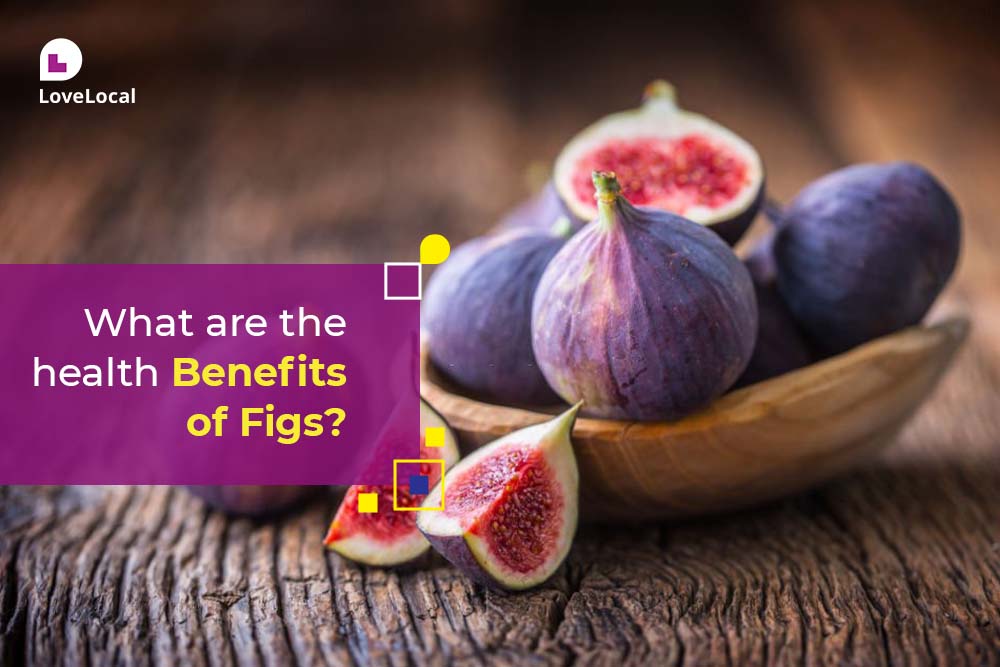Since ancient times, figs have been connected with health and prosperity. They were offered to the god Bacchus in ancient Rome and are symbolic of Demeter, the Greek goddess of fertility and agriculture. Figs are basically a selection of concave flowers that would grow from the inside out if left alone. They are common in the Middle East and the Mediterranean zone. Figs were frequently used to add flavor in desserts before sugar became popular. Today, as people begin to avoid refined sugars, many are returning to figs as a healthier alternative. Before we proceed further, we need to know more about fig.
What is Fig?
The fig is not a fruit according to botany. It is a syconium, which signifies that a portion of the stalks extends into a sac, where the flowers grow. Figs have a distinct flavor and texture. They’re both sweet and chewy. The evenness of the fruit and the crispness of its seeds make a delicious eating combination. Dried figs are available all year, while fresh figs are only accessible from June to September.
Figs come in green, yellow, red, white, purple, and black and are oval or pear-shaped. You can feed them uncooked and fresh, dried, or in a variety of recipes.

Nutritional Value of Fig
Figs are high in essential nutrients such as vitamins, potassium, zinc, calcium, and so on. As a result, they are among the healthiest fruits on the market. Here are some nutritional facts about figs.
100 grams of Fig contains:
- Carbohydrate – 19 grams
- Protein – 0.8 mg
- Fiber – 2.9 grams
- Calcium – 35 mg
- Magnesium – 17 mg
- Potassium – 232 mg
- Zinc – 0.15 mg
- Vitamin C – 2 mg
- Vitamin A – 142 IU
- Iron – 0.37 mg
Now it’s time to focus on the health benefits of Figs. So, let’s start.
1. Improves Heart Health
Figs help to improve heart health by lowering triglyceride levels in the blood. Triglycerides are blood fat particles that are a foremost reason for cardiovascular disease. Furthermore, the antioxidants in figs rid the body of free radicals, which restrict the coronary arteries and cause cardiovascular disease. Figs also have phenols and omega-6 and omega-3 fatty acids, which help to lower the danger of heart disease.
2. Enhance Digestive Health
Fiber aids metabolism, and figs are high in dietary fiber, which encourage good bowel movement and helps ease constipation. It thickens the stools and aids their passing through the body. The fiber in figs also cures diarrhea and soothes the digestive system as a whole. A high fiber diet is what you need to restore your digestive system, and figs are a must-have because they fill you up and keep you from overeating.
3. Prevents Breast Cancer
Figs are among the fruits with the highest fiber content. It was also discovered that women who ingested more dietary fiber during early adulthood and adolescence had a lower risk of developing breast cancer. Fiber consumption was linked to a 16% reduced risk of overall breast cancer and a 24% lesser risk of breast cancer before menopause. It is a great health benefit of figs in women.
4. Prevents Hypertension
When you consume less potassium and more sodium, the sodium-potassium stability in your body is disrupted, thereby producing hypertension. Because they are high in potassium, figs aid in restoring this balance.

5. Treat Sexual Disorders
Males can reap numerous benefits from fig. Potassium, Vitamin B6, magnesium, and copper, for example, can help boost male sperm production. Furthermore, figs can aid in the treatment of fatigue, erectile dysfunction, and infertility. As a result, they are beneficial to sexual health. It is a great health benefit of fig for men.
6. Improves Liver Health
Figs help to clear obstacles in the liver, improving its health. A study found that a fig leaf extract had hepatoprotective activity in mice, making it possible for its use in avoiding hepatic damage in humans. It is a crucial fig juice benefit.
7. Prevent Venereal Diseases
In many cultures, consuming or applying fig extracts has been shown to provide remedy from sexually transmitted diseases. Figs have been used as a soothing balm for venereal diseases. It is an important fig juice benefit.
8. Prevents Wrinkles
According to one study, fig juice had an antioxidative and anti-collagenase effect on wrinkled skin, as well as a reduction in the percentage of wrinkle depth. Another study discovered that a formulation containing fig fruit extract significantly reduced skin sebum, trans-epidermal water loss, and skin melanin. It also improved the hydration of the skin. As a result, figs could be used to treat hyperpigmentation, freckles, acne, and wrinkles. It is a vital anjeer benefit for the skin.

9. Cure Skin Inflammation
You can apply a fig straight to the skin to treat skin inflammations such as boils and abscesses. According to one study, the resin of the fig tree has antiwart activity. This might be due to the latex enzymes’ proteolytic activity. It is another fig benefit for skin.
10. Promotes Hair Growth
Hair loss is usually caused by a lack of proper nutrition. Figs contain nutrients that promote hair growth, such as magnesium, vitamin E, and vitamin C. This fruit’s essential nutrients enhance blood flow in the scalp, accelerating hair growth. It is an important anjeer benefit for hair.
Side Effects of Fig
Although there are numerous health benefits to eating figs, there are a few fig side effects to be aware of. So, to better understand, let’s look at some of them.
- Overeating figs may be harmful to your health in the long run. They incorporate oxalates, which can be harmful to the kidneys and gallbladder in large amounts.
- People may experience rectal and retinal bleeding as a result of its warm nature. It can also result in hemolytic anemia. As a result, it is critical to consume them in moderation.
- They contain oxalates, which can interrupt with absorption of calcium in the body. As a result, it may result in calcium deficiency.
- If you consume figs on a regular basis, you may develop sun sensitivity. This can result in rashes, skin burns, and other skin problems.
Conclusion
Figs are ideal for a balanced diet due to their numerous benefits. It can help with digestive, cardiovascular, and liver health. However, excessive consumption can result in itchy skin, diarrhea, and vomiting. If you are hypersensitive to figs, avoid eating them. Consuming them in moderation, on the other hand, can help you yield their benefits. Shop at LoveLocal to support local retailers!



